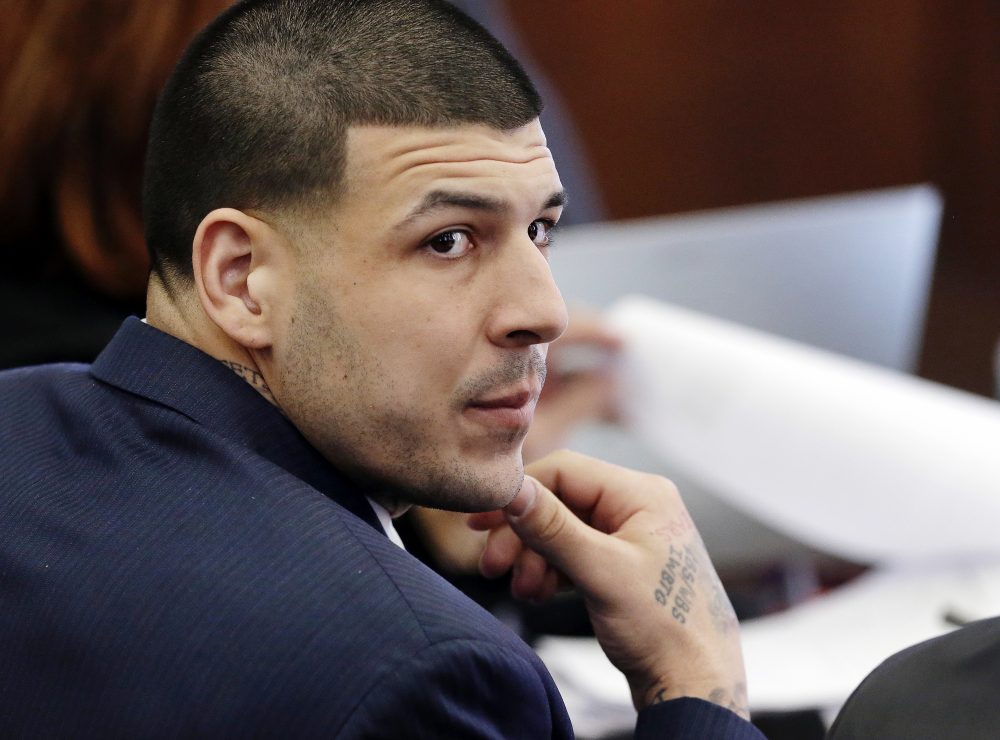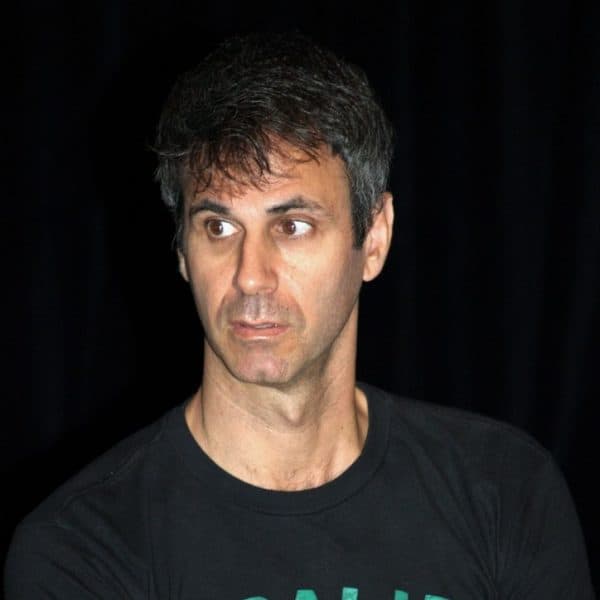Advertisement
Commentary
Did Aaron Hernandez Damage Football, Or Was It The Other Way Around?
Resume
So now we know that former Patriots tight end Aaron Hernandez, who was convicted of murder and wound up taking his own life in April, while serving a life sentence, had brain damage.
In fact, according to attorneys working on behalf of the Hernandez family, it was the most severe case of Chronic Traumatic Encephalopathy (CTE) ever seen in a player so young. Hernandez was 27. His brain, lawyers said, showed damage associated with a man in his late 60s.
He joins Junior Seau, Andre Waters, and Jovan Belcher in the ever-expanding club of former NFL players who killed themselves, at least in part because of a devotion to the game that made them famous.
Nobody can say for sure how much football contributed to the damage done to Hernandez’s brain, or how much CTE contributed to his violent outbursts. It’s clear from his biography that Hernandez was prone to violence from an early age.
But it would be foolish to pretend that CTE — whose symptoms include depression, memory loss, impulsivity, and violent mood swings — had nothing to do with his tragic legacy.
In cheering for his remarkable feats on the gridiron, were we fans also complicit in his grisly actions off it?
Before this news, of course, football fans tended to regard Hernandez as a kind of unfortunate outlier, a bad seed who brought dishonor to the sport.
Now, the question becomes: to what extent did the sport dishonor Hernandez? Sure, football made him a star and a rich man. But it may well have played a role in amping up his murderous temper. In cheering for his remarkable feats on the gridiron, were we fans also complicit in his grisly actions off it?
These are uncomfortable questions, especially here in football-crazed New England, where we like to keep the focus on the spectacle and drama of the sport, on handsome Tom Brady and brainy Bill Belichick and all those trophies.
But the lawsuit Hernandez’s attorneys are filing against the NFL and the Patriots will make it that much harder for us to ignore the medical and ethical costs of football.
You can surely expect that the Hernandez legal team will seek testimony from former Patriots such as Ted Johnson, one of the few players to speak candidly about the brutal realities of what is reverently termed “the Patriot way.”

Back in 2002, Johnson suffered a concussion and briefly blacked out during a pre-season game. He returned to practice four days later, hoping to avoid contact. Instead, he was pressured to engage in full-contact drills. Almost immediately, he suffered a second concussion and was rushed to the hospital.
When Johnson confronted Belichick privately, Johnson has said the coach admitted that he’d screwed up and apologized to him. But Belichick’s public response to the incident was to blame Johnson.
Johnson played three more seasons for the Patriots. He estimated that he suffered half a dozen more concussions. He reported only one of them because he wanted to avoid being labeled soft.
...the stunning news regarding the state of his brain complicates his story, just as it should complicate our moral relationship to football.
This mindset is precisely what makes Belichick such an effective coach. He “gets the most of out of his players,” in part by creating an atmosphere so intensely competitive that injured players place pride (and job security) over self-protection.
But of course the real source of the problem isn’t any single coach or team, nor the manifest greed of the NFL. It’s the simple fact that fans continue to embrace the game, knowing full well that many of their heroes (and anti-heroes) will wind up with brain damage.
As the victims of Aaron Hernandez’s various criminal offenses would tell you, the life he led on earth was profoundly destructive, perhaps even worthy of damnation.
But the stunning news regarding the state of his brain complicates his story, just as it should complicate our moral relationship to football.
His death may yet serve a greater good.
This segment aired on September 25, 2017.
